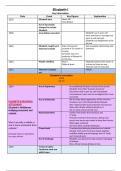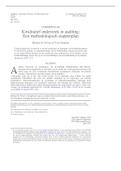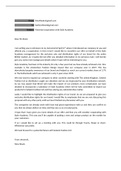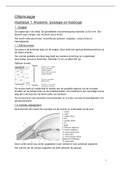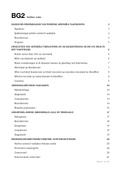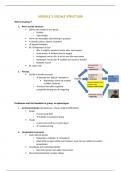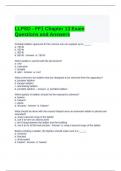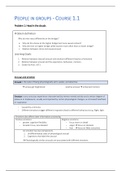Autumn 2020
Table of Contents
Week 1 - Introduction.........................................................................................................1
Week 2 – Defining media, information and culture.............................................................5
Week 3 – Exploring Living Information...............................................................................8
Week 4 – What is real?.....................................................................................................10
Week 5 – Love, Sex and Affect..........................................................................................15
Week 6 – Zombies and Materiality...................................................................................18
Week 7 – Working in the Media Industry..........................................................................21
Additional Notes...............................................................................................................28
Week 1 - Introduction
Definition of media:
- the main means of mass communication (broadcasting, publishing, and the Internet)
regarded collectively.
- Plural form of medium
- media is symbolic or tech systems that enable, structure, and promote
communication between people
The Truman Show (1998)
- A person owned by a corporation as a thing, owned by media
- The whole world is watching it all the time, they live by the show, not having their
own lives
- Christof = Big Brother
- Escape from the Paradise
- We accept the reality of the world with which we are presented
Life in a Day film (2010)
- On July 24, 2010, people from all over the world uploaded videos of their lives to
YouTube to take part in Life in a Day, a cinematic experiment to create a
documentary film about a single day on earth. Executive produced by Ridley Scott
(Gladiator, Aliens) and directed by Kevin Macdonald (State of Play, The Last King of
Scotland).
- People show themselves in media with relative ease, we become the producers of
media
,Media life (Mark Deuze, 2011)
- Media are any (symbolical or technological) systems that enable, structure or
amplify communication between people
- Life in today’s liquid modern society is all about finding ways to deal with constant
change, whether it is at home, at work or at play.
- Mediapolis = a comprehensively mediated public space where media underpin and
overarch the experiences and expressions of everyday life.
- I propose that the key challenge of communication and media studies in the 21st
century is, or will be, the disappearance of media.
- People do not recognize their media habits, because they are a constitutive part of
them
- Our life is lived in, rather than with, media – we are living a media life
- We are indeed in a new communication realm, and ultimately in a new medium,
whose backbone is made of computer networks, whose language is digital, and
whose senders are globally distributed and globally interactive.
- This mediation of everything is premised on the increasing invisibility of media
which, in turn, makes media indivisible from (all aspects of everyday) life. The
moment media become invisible, our sense of identity, and indeed our experience of
reality itself, becomes irreversibly modified, because mediated.
- THE TRUMAN SHOW DELUSION: The media life perspective applied to the theory
and empirical evidence of media studies raises (and perhaps confirms) the issue, that
our lived reality cannot be experienced separate from, or outside of media.
Metaphorically speaking, we are now all living inside our very own Truman Show.
The question is, if we should stay in the Truman Show and live in our own show,
knowing we are living in it, or get out of it, as Truman did.
- TSD = Truman Show Delusion = People who suffer from TSD are more or less
convinced that everything around them is décor, that the people in their lives are all
actors, and that everything they do is monitored and recorded.
- people in media life inevitably engage with reality on the basis of a constant moving
in between idealism (what we perceive) and materialism (what is apparent), using
the tools and techniques of contemporary digital and networked media to edit and
remix both their perceptions and the appearance of that reality.
- Can we be free and mediated at the same time?
- You live in media. Who you are, what you do, and what all of this means to you,
does not exist outside of media. Media are to us as water is to fish. This does not
mean life is determined by media - it just suggests that whether we like it or not,
every aspect of our lives takes place in media.
- A media life reflects how media are both a necessary and unavoidable part of our
existence and survival.
- Media are ubiquitous - they are everywhere - and pervasive - they cannot be
switched off.
, Note: ontology = is the philosophical study of being. More broadly, it studies concepts that
directly relate to being, in particular becoming, existence, reality, as well as the basic
categories of being and their relations.
Lecture 1
- Tech companies release similar videos/ads that present life in a day where media are
everywhere around us
- Media anywhere = virtual or physical
- Media anyplace = home, office, car, public, etc.
- The fantasy of media life is utopian, pure and happy, presenting rich life with no
difficulties, no technical problems etc.
o It seems like people are dependent on media and technology, cannot live and
function without it, as life can be smoother with media and technology
- In the history of media, a key observation would be, that the way people use media
increase importance and need to use it in everyday life
- Media, technology, and all of it are telling us “make something, change something”
- Shaping of media and society is mutual: we are shaped as our media change and
media are shaped as we use them
- media centric: media is most important
- society centric: society is most important (with use of media)
- What does media expect from us?
- Technogenesis = the views of Bernard Stiegler regarding the relation between
human’s origins and technology
- Technomyopia = tendency to initially overestimate and later underestimate the
impact of new technology; This over and underestimation of new technology are
integrally related in that, after our initial assumptions are proven wrong, we tend to
backtrack and adjust our future estimations. However, this seemingly logical
evaluation leads us to be wrong twice. Technological blindness resulting in
unintended consequences of epic proportions. Overestimation of media in the
short run, but underestimation of media in the long run.
Lecture 2
- A culture of “real virtuality” = what we do in real world and virtual world is
overlapping
- Culture of disinformation / misinformation
o Satire or parody = no intention to cause harm but has potential to fool
o Misleading content = misleading use of information to frame an issue or
individual
o Imposter content = when genuine sources are impersonated
o Fabricated content = new content is 100% false, designed to deceive and do
harm


